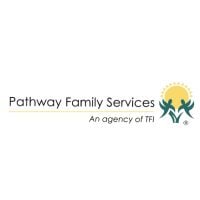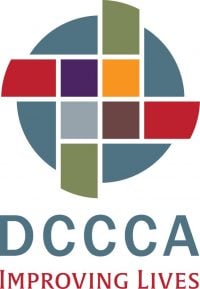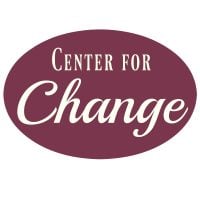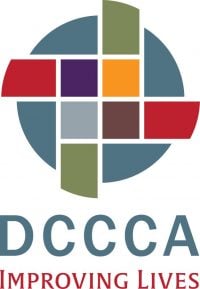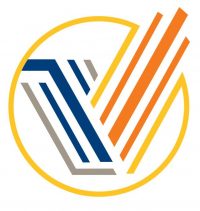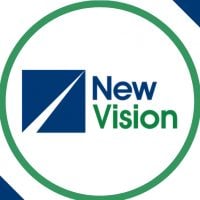
New Vision - The University of Kansas Health System
Drug Rehab Center in Topeka, Kansas
- Substance Abuse
- Opioid Addiction
- Dual Diagnosis
- Drug Addiction
- Alcoholism
The University of Kansas Health System's drug rehab center offers experienced, compassionate staff dedicated to helping patients with various levels of care, such as drug rehab, partial-hospitalization and detoxification, and also accepts private health insurance to make access to treatment more affordable.
About New Vision - The University of Kansas Health System in Kansas
New Vision - The University of Kansas Health System in Topeka, Kansas is a comprehensive treatment facility offering assistance to individuals seeking recovery from substance abuse and addiction. They specialize in treating various conditions such as substance abuse, alcoholism, opioid addiction, and dual diagnosis. The facility provides a range of services to support individuals on their journey to sobriety, including drug rehab, partial-hospitalization, and detox. With a focus on personalized care, New Vision aims to provide a safe and supportive environment to help individuals overcome their addiction and regain control of their lives.
The treatment approach at New Vision - The University of Kansas Health System incorporates various evidence-based methods to address addiction and substance abuse. Their services are designed to cater to the unique needs of each individual, offering a tailored treatment plan. Through a combination of medical and therapeutic interventions, they strive to provide comprehensive care throughout the recovery process. From detoxification to ongoing support and education, New Vision empowers individuals with the necessary tools and resources to achieve long-term sobriety. Their professional team utilizes a multidisciplinary approach, combining counseling, medication management, and behavioral therapies to facilitate holistic healing and address the underlying causes of addiction.
Genders
Ages
Modality
Additional
Conditions and Issues Treated
Substance Abuse Treatment is important when getting sober, as it helps addicts learn the skills they need to live a clean life. There are many different kinds of recovery treatment, including but not limited to medication-assisted therapy, behavioral therapeutic approaches, self-help groups, and counseling. Each treatment has its benefits that help addicts recover.
Counseling can help addicts learn the skills they need to live sober lives. It can be used to treat underlying mental health issues, like depression or anxiety, that could lead to relapse. Counseling can also help people find work, deal with family problems, and learn to manage living without drugs.
With so many people addicted to opioids, we need to help those who want to quit. The cycle begins when opioid addicts take opioids for a painful injury. When someone starts taking their medication differently or in excess, it means they’re addicted and at risk of overdosing.
In , detoxing from these types of treatments is the most effective way to beat this. Most facilities begin with medical assistance and then provide counseling services; rehabilitation follows after successful treatment.
Levels of Care Offered
This center offers a variety of custom treatment tailored to individual recovery. Currently available are Detox, Drug Rehab, Partial-Hospitalization, with additional therapies available as listed below.
Detox is an integral part of recovery and often very hard. Detoxification is the process of letting the body remove the drugs in it. It addresses the physical aspect of addiction. Detox from drugs can be unsafe as the patient undergoes withdrawal symptoms that range from headaches, vomiting, body aches to seizures and cardiac arrests. The main purpose of detox is to keep the drug users comfortable as the drugs leave their system.
Quitting cold turkey is not recommended and can lead to many issues. Detox is best done under medical supervision so that a team of experts can monitor the side effects and complications. Detox, alone, does not guarantee sobriety as the underlying psychological issues are not addressed.
A popular way of getting drug treatment is through a Partial Hospitalization Program. These programs are short and intensive, allowing for more freedom in family visits. Patients can check in with the program anywhere from 18 to 30 hours per week but only sleep at home at night. The program may last anywhere from one to six months.
Therapies & Programs
Different people react differently to various treatment options. Some drug rehabilitation centers offer individualized treatment that caters to the specific needs of a drug addict. The best treatment option varies on an individual depending on the type of drug abused, life history, medical condition of the person, social circumstances, and the environment they live in now.
When a person enters drug rehab, they usually have anti-drug associations such as withdrawal symptoms, stress, cravings, etc. The first step of drug rehab is to detoxify the body from any residual substances in it. Drug rehabilitation centers usually employ trained medical professionals to help in this process. Usually, the initial detoxification lasts for five days, where the person is monitored under close supervision.
Attending group therapy at New Vision - The University of Kansas Health System in , is a useful way for those seeking sobriety to realize they aren’t the only one going through it.
This is when a group of people on different recovery phases get together and talk about what they’re going through, their triggers, successes, and failures. This can include alternative types of therapies too! Group therapy may occur on an outpatient or inpatient basis with groups that have no pre-existing relationships outside the session, unlike support groups where everyone already knows each other beforehand.
Payment Options Accepted
For specific insurance or payment methods please contact us.
Is your insurance accepted?
Ask an expert, call (888) 674-0062
Additional Details
Specifics, location, and helpful extra information.
Topeka, Kansas 66606 Phone Number(785) 379-4666 Meta DetailsUpdated November 25, 2023
Staff Verified
New Vision - The University of Kansas Health System Patient Reviews
There are no reviews yet. Be the first one to write one.
Topeka, Kansas Addiction Information
About 42% of adults in Kansas have tried an illicit drug at some point in their lives. 12.4% of the state population uses illegal drugs and 4.5% abuse alcohol in a given year. 15.16% of all deaths in Kansas between 2008 and 2017 were caused by either drugs or alcohol.
9.8% of people in Topeka, Kansas, aged 12 or older had used an illicit drug. The number of meth lab seizure events in Kansas rose 48% over the same period. Commonly misused illicit substances in Topeka include MDMA ( ecstasy ), LSD, methamphetamine, and cocaine. There are several different addiction treatment programs in Topeka, Kansas. Some of the programs include inpatient, outpatient, day-treatment programs, and sober homes.
Treatment in Nearby Cities
- Ellsworth, KS (138.2 mi.)
- Moundridge, KS (114.8 mi.)
- Emporia, KS (52.2 mi.)
- Marysville, KS (74.3 mi.)
- Salina, KS (104.1 mi.)
Centers near New Vision - The University of Kansas Health System
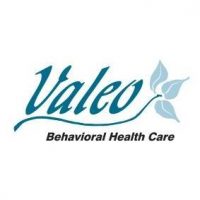

The facility name, logo and brand are the property and registered trademarks of New Vision - The University of Kansas Health System, and are being used for identification and informational purposes only. Use of these names, logos and brands shall not imply endorsement. RehabNow.org is not affiliated with or sponsored by New Vision - The University of Kansas Health System.

